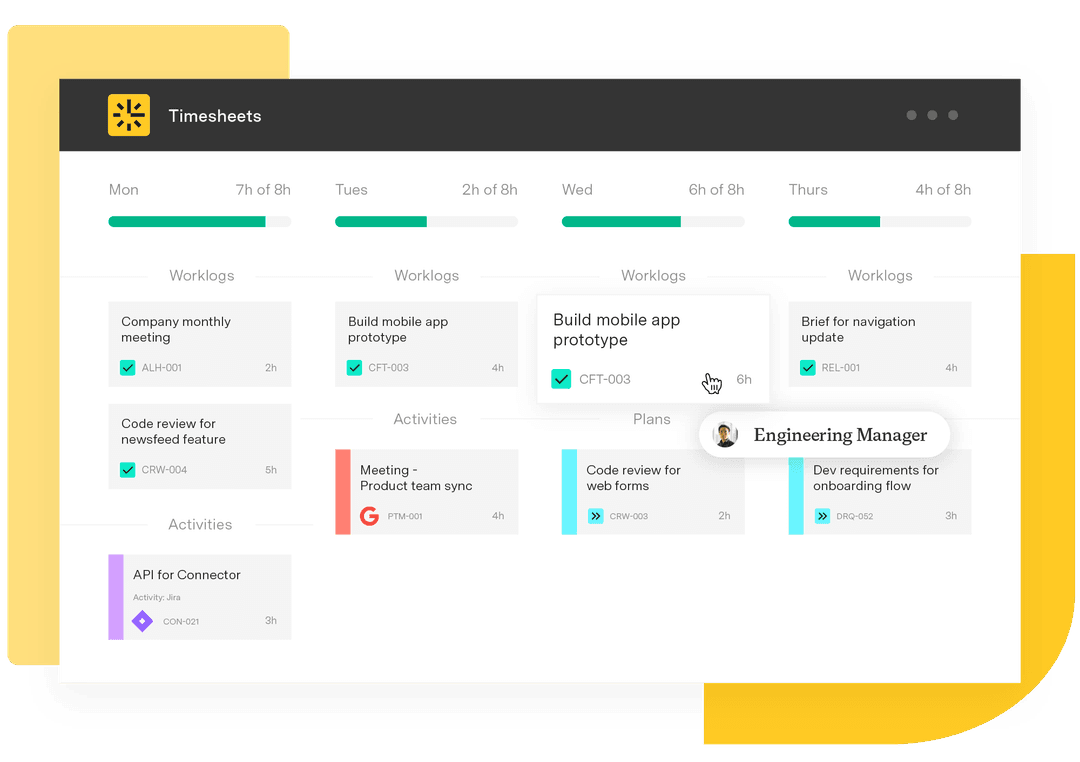How BAE Systems use Tempo Financial Manager to manage EVM projects
Tempo Team
BAE Systems provides some of the world’s most advanced, technology-led defense, aerospace, and security solutions. Their strong focus on project cost control led them to implement earned value management (EVM) and Tempo Financial Manager, an agile project finance tool for Jira.
A lack of insight into true cost overrun
Best known for building fast jets, nuclear submarines, and vast ships, the BAE Systems group employs approximately 83,400 employees in over 40 countries. Their Applied Intelligence division helps nations, businesses, and governments protect and defend against cyber crime.
The entire software team in the Applied Intelligence division uses Jira Software as well as other Atlassian tools, such Advanced Roadmaps for Jira, Confluence, and BitBucket. The hardware teams are also starting to get on board. This means that the details of individual tasks and their progress are held within Jira.
Their development teams use a mix of waterfall, Kanban and Scrum methodologies. They have been evolving from delivering projects for UK clients on a time-and-materials basis to working with clients worldwide, which demand contracts with a fixed price and scope within a competitive tender environment.
Originally, Applied Intelligence were using Microsoft Project for traditional waterfall project planning and SAP for financial management. Project managers weren’t using data held in Jira but relying on status reports from team leads.
With projects involving multiple engineering teams delivering separate work packages, monthly project finance status reviews became difficult, and it was a challenge for the project managers to understand when costs were overrunning.
Implementing earned value management (EVM)
Many projects just monitor planned versus actual costs. The danger is that the true cost overrun is not clearly understood from those two metrics alone – as the Applied Intelligence division of BAE Systems started to discover.
Earned value management (EVM) is a project management technique that measures project performance and progress by examining the work done at each stage of the project (earned value), as well as the planned and actual costs.
By tracking earned value, the progress of completed items of value in proportion to the total planned spend shows how far they are through the delivery of the project. Three lines (planned, actual, and earned) offer a more accurate view of the true cost and schedule status of the project, allowing project managers to identify trends and take early corrective actions.
Other divisions within BAE Systems had experience with EVM already, so the organization wanted to apply the same technique within Applied Intelligence. But earned value can be time-consuming to manually create from Microsoft Project, especially when the details of individual tasks and their progress are tracked elsewhere in Jira.
Tempo Financial Manager for EVM
Damian Le Gresley, head of engineering improvement in the applied intelligence division at BAE Systems, sought a new Jira-integrated tool to replace MS Project. He learned about Tempo Financial Manager from a six-person team that had been using the tool to manage budgets for small contracts. He immediately saw the possibility of implementing Financial Manager across the division.
Le Gresley added: “I saw the potential of Tempo Financial Manager, so I tried it on a complex major program. I liked the way it reused existing issue backlogs to create historical earned value and clearly shows progress versus budget.”
Damian is able to enter team resourcing information to get a future actual projection. Financial Manager provides a forecast of the projected completion date and costs for the program by extrapolating the earned value metric.
Meanwhile the ‘portfolio’ feature enables each engineering team to manage their own projects in Financial Manager. These are aggregated in the portfolio view at the program level, offering managers a broad view into all the engineering teams’ work.
Damian then defined a workflow integrating Financial Manager with SAP within the project reporting cycle. Subsequently, this workflow was replicated across all other major programs.
Tempo Financial Manager has made quite the difference at BAE Systems' Applied Intelligence division. The app has saved project managers time preparing for the monthly project reviews as they no longer have to generate earned value graphs manually. It has also made the cost/schedule trend more visible to both the development and project teams, empowering them to take early corrective action.


